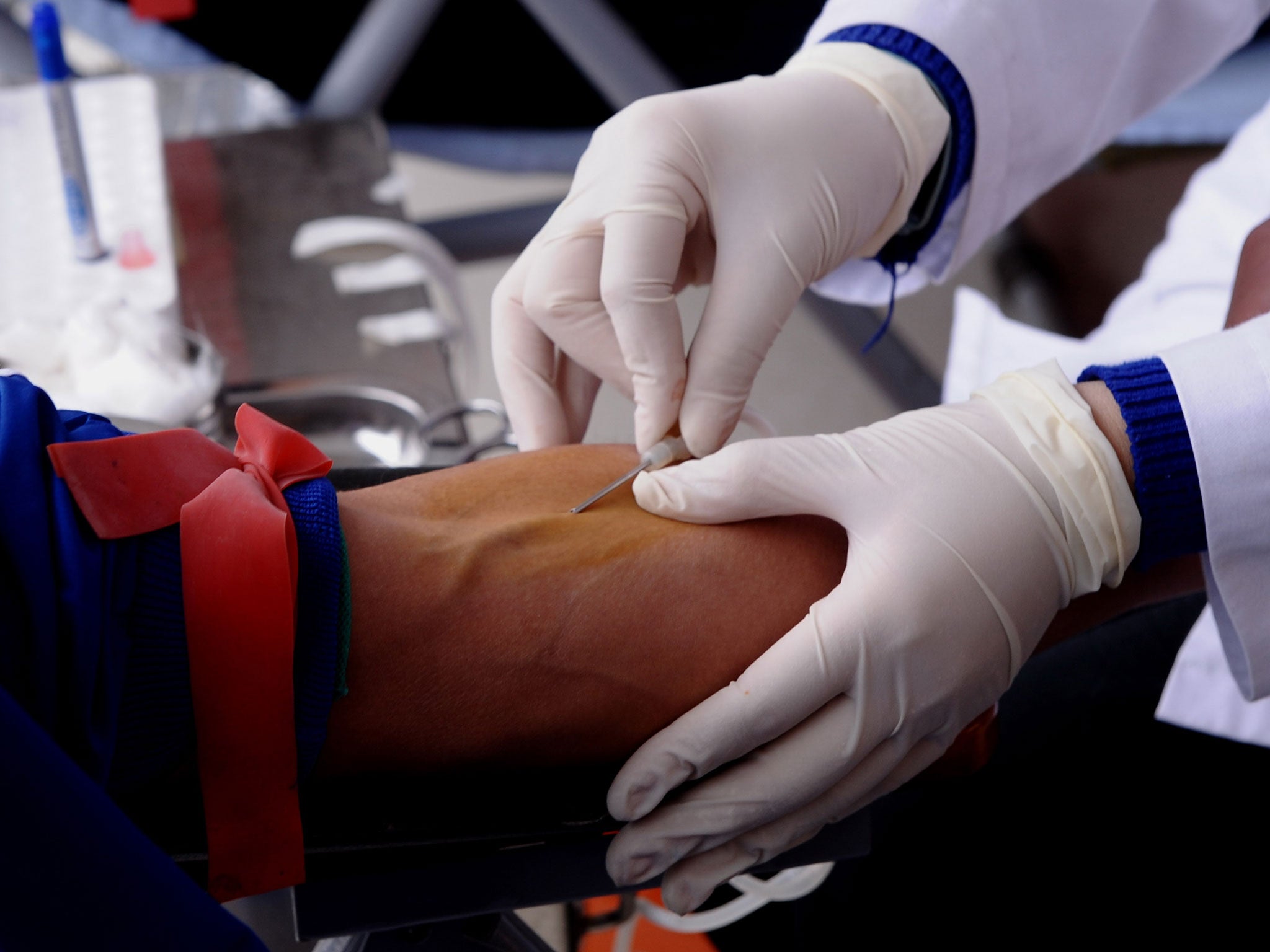‘Substandard care’ for over-70s with ovarian cancer as 1 in 5 patients ‘gets no treatment’
‘I sincerely hope I have a lot more living to do,’ says patient

Women aged 70 or over are receiving substandard care to tackle ovarian cancer with one in five patients in their seventies getting no treatment whatsoever, a new study has found.
A report from Ovarian Cancer Action revealed almost half of patients in their 70s do not undergo surgery to treat the disease, even though it provides the best long-term prognosis for one of the most common types of cancer in women.
In total, around one in five (22 per cent) of ovarian cancer patients aged 70 to 79 received no treatment at all for their cancer.
Researchers found three in five women with ovarian cancer who were over 80 years old were given no treatment for the disease.
Every day 11 women die from ovarian cancer in Britain, with two-thirds diagnosed with the disease once the cancer has already spread, which makes it more difficult to treat and increases the likelihood of it returning.
The inadequate healthcare given to older ovarian cancer patients causes a disproportionately high short term death rate for them, the study found.
Around four in 10 women diagnosed who were in their seventies, and some 70 per cent of women diagnosed over the age of 80, died in the first year after being diagnosed with the illness, a figure which is significantly higher than the 28 per cent for all age groups.
The study found older patients are substantially less likely to be referred by their GP for diagnostic tests such as ultrasounds when ovarian cancer symptoms surface.
Pamela Bonati, who was diagnosed with ovarian cancer aged 78, said: “I have my ups and downs but generally fare well.
“Some days I have to pinch myself to remember I have cancer. Before my diagnosis I was swimming, walking and travelling at every opportunity and I hope to be back doing those things again eventually.
“I’m very grateful for the excellent treatment I have received and the time it gives me with my rock of a husband, my son and his wife and our wonderful friends. I sincerely hope I have a lot more living to do.”
Ms Bonati, who is having treatment at the moment, has received a high standard of care even though she is in the age bracket of those worst affected.
More than a third of women diagnosed with ovarian cancer each year are over the age of 70.
Researchers said the findings were particularly worrying given the UK has an ageing population – with a quarter of people expected to be aged over 65 by 2050.
The proportion of Britons who are older than 85 is set to double by 2041 and then treble by 2066.
Each year, there are roughly 7,500 new ovarian cancer cases in the UK – with around 4,000 deaths annually.
Researchers found it was rarer for women older than 70 to be invited to participate in research or clinical trials than those under 70, which in turn blocks them from trying new treatments.
Dr Susana Banerjee, a consultant medical oncologist at The Royal Marsden, said: “With an ageing population, many more patients with ovarian cancer are over the age of 70, so there is an urgent need to understand the best way to effectively treat older women.
“Optimising patients for treatment through frailty assessments and interventions, sharing best practice across cancer centres and representing older patients in clinical trials are important steps towards ensuring equal access to effective and tolerable treatment that could help more women live beyond their diagnosis, with a good quality of life, no matter their age.”
If doctors are able to diagnose ovarian cancer at the earliest stage, 9 out of 10 women will go on to live for half a decade or longer, but this falls for those diagnosed with a more advanced form of the disease.
According to the NHS, around half of women with the disease will live for at least five years after diagnosis, while around one in three will live at least a decade.
Marie-Claire Platt, of Ovarian Cancer Action, said: “A woman with ovarian cancer deserves the best chance to survive her disease, no matter what her age. We urgently need to understand why for many women this is not being reflected in their care.
“The Covid-19 pandemic has inevitably set us back, but now is the time for us to take action and ensure that every woman receives the best possible standard of care and that no woman is left behind.”
Join our commenting forum
Join thought-provoking conversations, follow other Independent readers and see their replies
Comments

Bookmark popover
Removed from bookmarks